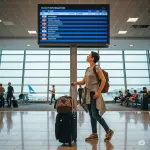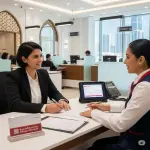Dubai: The UAE has reiterated strict guidelines for residents, tourists, and transit passengers carrying prescription or controlled medicines into the country. The rules aim to ensure public safety, prevent misuse of narcotics and psychotropic substances, and streamline the approval process for travellers.
The Ministry of Health and Prevention (MOHAP) has outlined detailed requirements for the import of medication for personal use, including a clear distinction between regular prescription drugs and controlled medicines, which require additional approval.
Controlled vs Non-Controlled Medicines
Travellers are urged to first identify whether their medication is classified as a controlled substance. This category includes narcotics, certain painkillers, anti-anxiety medication, sleep aids, and stimulant-based treatments. These are subject to stricter import controls.
Non-controlled medicines—such as common antibiotics, vitamins, and non-addictive prescription treatments—do not require prior MOHAP approval, provided travellers carry a valid prescription.
MOHAP Approval for Controlled Medicines
For controlled medicines, travellers must apply for an import permit through MOHAP before arriving in the UAE. This applies to both residents and visitors, although for short visits, the permit is optional if carrying less than a three-month supply. Authorities, however, advise applying in all cases to avoid delays or confiscation at customs.
The approval process can be completed online via the MOHAP portal or mobile app. Applicants must submit personal details, medicine information, and supporting documents. Processing usually takes between one and five working days, and there is no fee. Once approved, the traveller receives an electronic permit, which must be presented at the airport if requested.
Documentation Requirements
The application for controlled medicines must include:
A valid prescription issued within the past three months, stating the patient’s name, dosage, treatment duration, prescribing doctor’s name, and contact details.
A medical report issued within the past year, including diagnosis, treatment plan, and doctor’s signature.
Identification such as a passport copy or Emirates ID.
The prescription and report should be in English or Arabic, and the medicine must be in its original packaging.
For non-controlled medicines, travellers need only a valid prescription to carry up to a three-month personal supply. No MOHAP permit is required in these cases.
Quantity Restrictions
The UAE allows a maximum of three months’ supply for personal medication. Carrying larger amounts without proper approval may lead to seizure of the medicine and possible legal action.
Medicines must be intended solely for the personal use of the traveller. Importing drugs for others or for commercial purposes without a licence is strictly prohibited.
At the Airport and Customs
On arrival, passengers carrying medication may be asked to declare it at customs. Travellers should keep the medicine in hand luggage for easy inspection and present the prescription and MOHAP approval (if applicable) to officials when requested.
Those transiting through the UAE must also comply with these rules, particularly if changing flights within the country.
Consequences of Non-Compliance
Bringing controlled medicines into the UAE without proper documentation can result in confiscation, fines, or prosecution. The UAE maintains a zero-tolerance policy toward the illegal importation or misuse of narcotics and psychotropic substances.
Authorities have stressed that travellers should not attempt to conceal medicines or provide false information, as penalties can be severe under the country’s drug control laws.
Practical Advice for Travellers
Health professionals advise travellers to prepare in advance, particularly if taking long-term medication for chronic conditions. Applying for MOHAP approval well before travel ensures there is enough time to gather the necessary documents and receive the permit.
They also recommend carrying an extra copy of the prescription and keeping medicine in its original labelled packaging to avoid confusion during inspections.
Some travellers report that while they have been able to bring certain controlled medicines into Dubai without issues—such as anti-anxiety or antidepressant tablets—they always carried the prescription and, when possible, the MOHAP permit to avoid delays.
Step-by-Step Process for Controlled Medicines
Check classification: Confirm if the medication is on the controlled list.
Gather documents: Obtain a recent prescription, medical report, and ID.
Apply online: Use the MOHAP portal or app to submit details.
Wait for approval: Processing takes 1–5 working days.
Travel with care: Carry the permit, prescription, and medicine in original packaging.
Declare if asked: Present documents at customs if requested.
Supporting Health and Safety
The UAE’s rules are designed to protect public health while ensuring travellers can access essential medication during their stay. By requiring documentation and approval for controlled medicines, the authorities aim to prevent abuse and ensure that only legitimate medical use is permitted.
With clear procedures in place and online applications available, officials say the process is straightforward for those who plan ahead. Travellers are encouraged to review the requirements before their trip to avoid last-minute complications.










